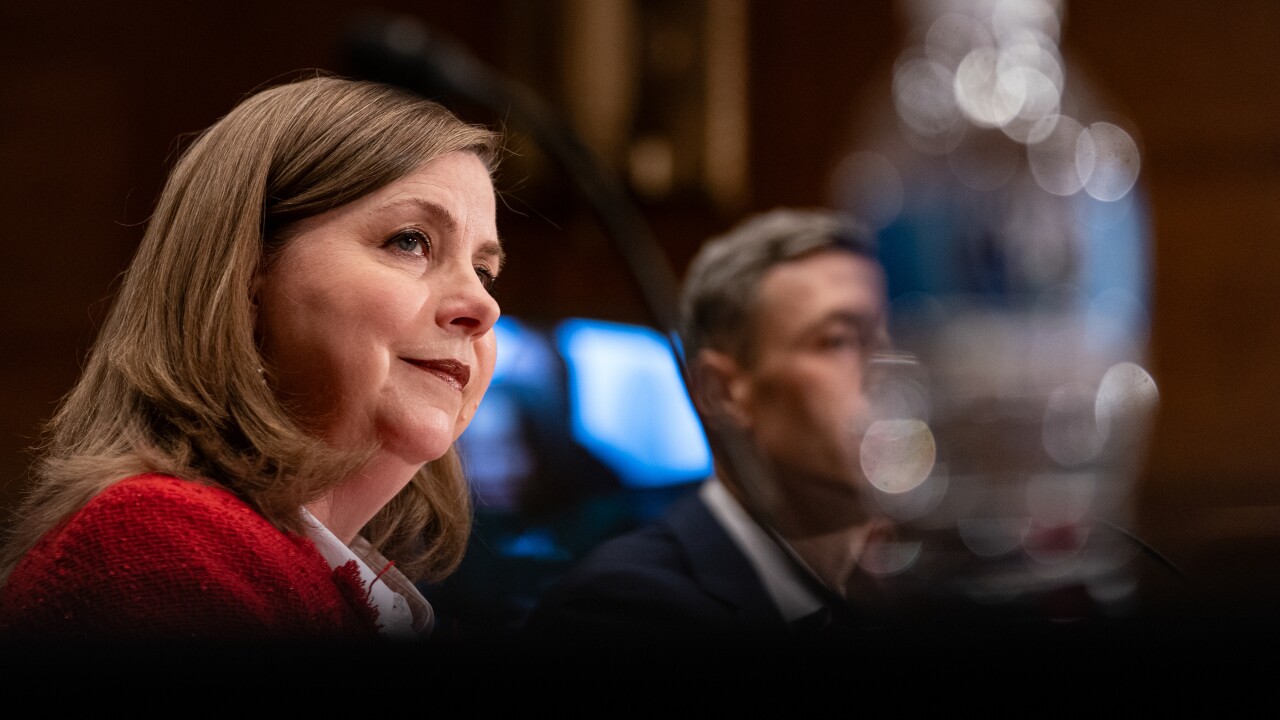The European Central Bank made a veiled threat to commercial banks that are extracting fees from real-time payments, stating the levies stand in the way of progress.
The warning comes as more U.S. firms build out their own competitively priced faster-payment systems.
At a
Panetta was referring to pricing, which in his view lacks attractiveness and transparency. The cost of a TIPs transaction is 0.20 eurocents (about $0.25) for service providers, but many banks are charging up to €1 (about $1.25) per transaction, he said.

"This must change," Panetta said, adding the ECB would like to see instant payments available on all common electronic channels and offer popular options like request-to-pay. "For instant payments to become the new normal, they must be cheap and easy to use," Panetta said. The ECB did not return a request for comment by deadline.
The ECB is under pressure to deliver on its promise to improve transactions and make the EU's financial sector more competitive, and sees the bank fees as counterproductive revenue grab.
"The EU has spent a great deal of money and other resources to launch their real-time payments infrastructure," said Sarah Grotta, director of the debit and alternative products advisory service at Mercator. "Now they need to prove that it was the right thing to do and they need the banks’ cooperation to make it successful."
Panetta's address wasn't only about payment fees. Panetta called the European Payments Initiative a top priority and stressed the need for Europe-grown payment solutions and technology — an indirect reference to the competitive threat from American payment companies.
The initiative's argument is European payment products are fragmented and not interoperable. This makes it harder to build a digital payment system for the entire continent at a time when many businesses and consumers are migrating to e-commerce.
EPI is designed to counter Visa, Mastercard and U.S.-based payment companies like PayPal and Square, all of which have substantial business in Europe.
If banks charge fees to their customers for using real-time payments such as TIPs, adoption will not take off as the ECB would like to see, Grotta said.
"The regulator needs to see greater adoption to assist their plans to nationalize payments and oust other payment types, especially those from U.S. headquartered companies like the global card networks," Grotta said. "I suspect that regulation of real time payment fees is on the horizon."
Even within the EU, there are still regulatory inconsistencies between countries, and the ECB is building toward a mandate that all banks offer SEPA Instant, according to Gareth Lodge, a senior analyst at Celent.
Part of the Single Euro Payment Area,
"SEPA may have harmonized the payment methods, but it hasn't addressed that each European country approaches banking fees and charges differently," Lodge said, adding regulators thus far have stopped short at imposing detailed rules, focusing mostly on card fees. "Might this [speech] be a sign that the EU will go further with regulations?" Lodge said.
Concerns over bank fees for expedited payment processing aren't new. In the U.S. there was a
The Clearing House, which operates real-time payments in the U.S. via a network of financial institutions that reaches 70% of demand deposit accounts,
Most of the fintechs that offer real-time P2P do so as a loss leader more than a revenue generator. "Increasingly systems such as Venmo, Square Cash, Zelle, Alipay, Swish, Mobilepay and Vipps provide domestic P2P payment fee-free to consumers and look to monetize their users elsewhere," said Eric Grover, a principal at Intrepid Ventures, adding virtually all providers charge for cross-border transactions.





